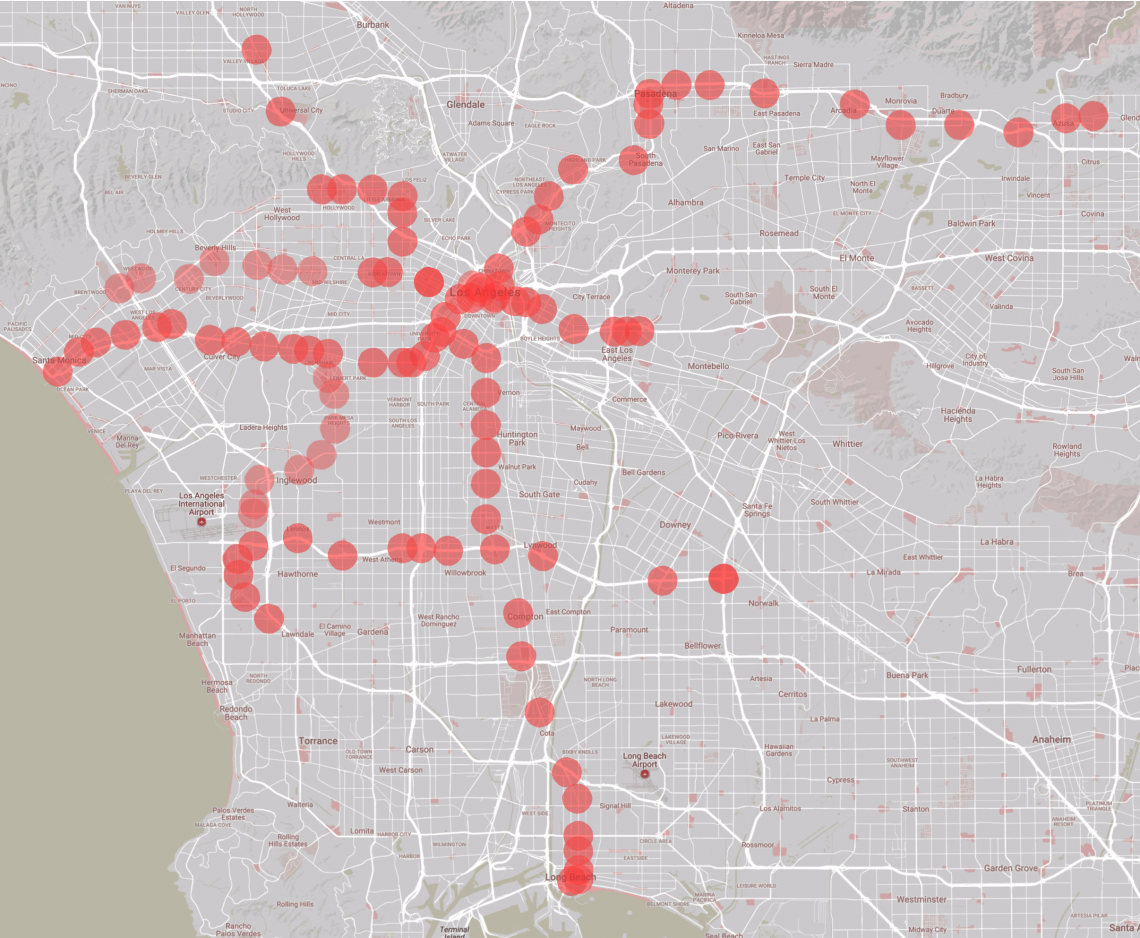By Jack Allen
(Editor’s note: SB 827 would allow the state, rather than a city, to have control over the height/density of housing near transit [half-mile radius of a major transit stop or quarter-mile radius of a high-quality transit corridor, such as Sunset]. Longtime local activist and attorney Jack Allen sent his analysis of the bill to the Pacific Palisades Community Council.)
Allen’s Analysis:
The premise for SB 827 is based on the myth that residents of buildings adjacent to or near a transit corridor will primarily use transit as their primary means of transportation. That may be true in the Bay Area and in particular San Francisco (which is represented by the sponsors of the bill), where most businesses and residences are relatively close to a well-developed transit system and has BART, but it will not work in Los Angeles with its vast urban sprawl and poorly developed transit system.
Studies in Los Angeles have shown that the residents of buildings near transit stops rarely use the transit to travel to and from job sites. The majority of job sites in Los Angeles are not served by transit or if so, the job site is located so distant and transit is so slow that it is easier for the resident to drive to and from the job site.
Most residents of such buildings move into them because of the availability rather than the location. Moreover, when a resident changes jobs, the resident does not move to a location near the new job site in part because there is no affordable or desirable housing located near the job site. Additionally, many jobs require that the resident have a vehicle.
In Los Angeles, even if residents use transit, they still own vehicles, and married couples will usually own two vehicles. Therefore, most residents in buildings near transit corridors will still have vehicles to park and it does not make sense to reduce the parking requirements because residents will park on nearby streets, which has been a real problem in Los Angeles.

Even prior to the passage of Proposition 13 and its progeny, the City of Los Angeles was critically short of the infrastructure necessary to support not only its residents, but also its business community.
The situation is dire now and there is no foreseeable solution. The City is close to bankruptcy. Every addition to its housing supply only exacerbates the situation. The bucket is overflowing.
SB 827 will only exacerbate the problem. The bill mandates that local agencies allow much more intensive building, yet does not provide funds to offset the costs that will incur to the local agencies despite the requirement in the California State Constitution that any costs incurred by local agencies as a result of State legislative action must be reimbursed by the State. The bill’s authors attempt to avoid this mandate by declaring that “a local agency or school district has the authority to levy service charges, fees, or assessments sufficient to pay for the program or level of service mandated by this act, within the meaning of Section 17556 of the Government Code.”
That is a fiction. It is unconstitutional for the Legislature to attempt to avoid the Constitutional requirement using Section 17556 in this case. No local agency has the authority to levy charges, fees, or assessments to the degree necessary to offset the costs of providing the necessary infrastructure imposed by SB 827. Moreover, local agencies cannot raise the taxes necessary to provide the necessary services without obtaining a two-thirds vote of the electorate.
Additionally, assuming local agencies could impose the necessary charges, fees, and/or assessments, they would be so high that the landowners constructing housing pursuant to SB 827 would have to either sell the housing provided at such a high cost or charge such high rents that the housing would not be affordable for most people.
Summary: SB 827 is bad legislation. Not only is it an effort to bypass local control of land uses, every time the State Legislature preempts local regulations, such as mandating density bonuses, granny flats, etc., it only results in a lower quality of life for the residents living within the local agencies’ boundaries. The only beneficiaries of SB 827 will be owners of properties located within the transit corridors defined in the bill. They will get richer, as will the politicians who sponsor this legislation, while the residents of the local agencies’ boundaries will suffer.
For more information on the bill, click here.











You must be logged in to post a comment.